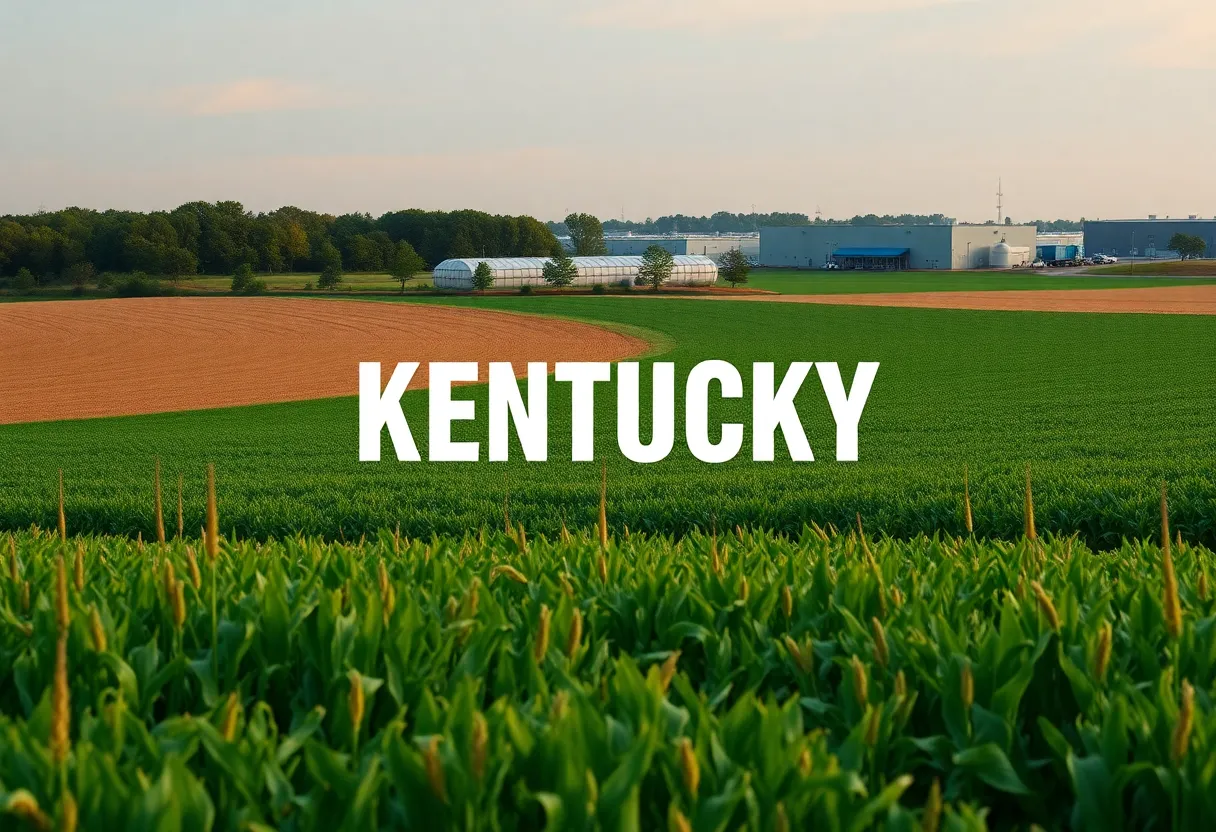Louisville, October 20, 2025
An opinion piece discusses the impact of Kentucky’s 142-year-old agricultural seed program in shaping the state’s economy. The initiative, which began in 1883, significantly improved agricultural practices leading to major investments, such as Ford Motor Company’s manufacturing plant in Louisville. Today, the program’s legacy supports thousands of jobs and billions in economic contributions, showcasing the importance of long-term planning in agriculture for modern industry success.
Louisville, KY – An opinion piece highlights how a 142-year-old agricultural seed program has indirectly shaped Kentucky’s economy, playing a key role in attracting major investments like Ford Motor Company’s automotive manufacturing plant to the state.
The initiative, launched in 1883, focused on improving agricultural practices and boosting rural development. This early effort enhanced farmland productivity, strengthened local economies, and built essential infrastructure in rural areas. Over time, these improvements created a stable foundation that made Kentucky an attractive location for large-scale industries, including automotive production.
Impact on Modern Economy
Today, Ford’s plant in Louisville stands as a direct beneficiary of this historical groundwork. The facility employs thousands of workers and generates billions of dollars in contributions to Kentucky’s gross domestic product (GDP). This economic activity underscores the lasting value of the seed program, which transformed rural Kentucky into a hub capable of supporting advanced manufacturing.
Experts point to this example as a model of how long-term planning in agriculture can drive contemporary business growth. The program’s success demonstrates the importance of investing in foundational sectors to attract high-value industries. In Louisville, the automotive sector has become a cornerstone of the local economy, providing stable jobs and fostering related business opportunities.
The seed initiative began as a response to the needs of Kentucky’s farming communities in the late 19th century. By introducing better seeds and farming techniques, it increased crop yields and supported rural populations. This led to the development of roads, utilities, and other infrastructure that were crucial for industrial expansion decades later.
Historical Context of the Seed Program
In 1883, Kentucky established the program to address agricultural challenges prevalent at the time. Farmers faced issues like poor soil quality and inconsistent yields, which limited economic progress. The initiative distributed improved seeds and provided education on modern farming methods, gradually revitalizing the state’s agricultural base.
By the early 20th century, these efforts had noticeable effects. Rural areas saw population growth, better transportation networks, and increased trade. This progress caught the attention of industries seeking reliable locations with skilled labor and solid infrastructure. Ford Motor Company selected Kentucky for its plant in the mid-20th century, building on the economic stability fostered by over 70 years of agricultural improvements.
The plant’s operations have since expanded, incorporating advanced technologies and supply chains that benefit the entire region. Thousands of direct jobs at the facility support families, while indirect employment in logistics, parts manufacturing, and services multiplies the economic impact. The billions contributed to GDP reflect the plant’s role in state revenues, funding public services and further development.
Lessons for Business Development
Current strategies in Kentucky draw inspiration from this historical synergy. Business leaders emphasize sustained investments in education, infrastructure, and workforce training to attract companies in sectors like technology and renewable energy. The seed program’s legacy shows that early, targeted initiatives can yield benefits for generations, positioning regions for long-term competitiveness.
In Louisville, ongoing efforts build on this foundation. Local governments and economic development groups focus on diversifying the economy while leveraging strengths in manufacturing. The Ford plant remains a flagship example, illustrating how historical agricultural roots support modern industrial might.
The connection between the 1883 seed program and today’s automotive success highlights the power of strategic planning. By prioritizing rural development over a century ago, Kentucky created conditions that continue to fuel economic growth. This approach serves as a blueprint for other regions aiming to blend historical assets with future opportunities.
Understanding this evolution helps explain why Kentucky remains a key player in national manufacturing. The state’s ability to adapt from agriculture to industry showcases resilience and foresight, ensuring prosperity for communities across Louisville and beyond.
FAQ
What is the historical seed initiative mentioned in the article?
The initiative, started in 1883, boosted rural economies and infrastructure, making the state appealing for automotive manufacturing.
How has the seed program influenced Ford’s presence in Kentucky?
The program’s efforts enhanced farmland productivity, strengthened local economies, and built essential infrastructure in rural areas, creating a stable foundation that made Kentucky an attractive location for large-scale industries, including automotive production.
What is the current economic impact of Ford’s plant in Louisville?
The facility employs thousands of workers and generates billions of dollars in contributions to Kentucky’s gross domestic product (GDP).
Why do experts view this as an example of long-term planning?
Experts say this historical synergy exemplifies how long-term planning drives modern economic success, inspiring current business development strategies across the region.
Key Features Chart
| Feature | Description |
|---|---|
| Historical Initiative | Started in 1883 to improve agricultural practices and boost rural development. |
| Economic Impact | Enhanced farmland productivity, strengthened local economies, and built infrastructure. |
| Ford’s Role | Plant in Louisville employs thousands and contributes billions to Kentucky’s GDP. |
| Long-term Benefits | Exemplifies how planning in agriculture drives modern business success and inspires strategies. |
Deeper Dive: News & Info About This Topic
HERE Resources
Condrad Daniels Elected as Chair of Kentucky Chamber of Commerce
Derby Brew Co. Opens in Louisville’s NuLu, Boosting Local Economy
Spooky Sunrise Sees 300% Sales Increase Ahead of Halloween
Boundary Oak Distillery Launches Eco-Friendly Facility in Radcliff
Kentucky Startups Raise $27 Million in Q3
Household Tips to Extend Fresh Produce Shelf Life in Louisville
Cornbread Hemp Expands Product Line Amid Growth in Louisville
Fred Pizzonia Jr.: Louisville’s Restaurant Success Story
Louisville’s Maker’s Mark Expands Bourbon Production
Harvest Moon Peaks over Louisville Skies





